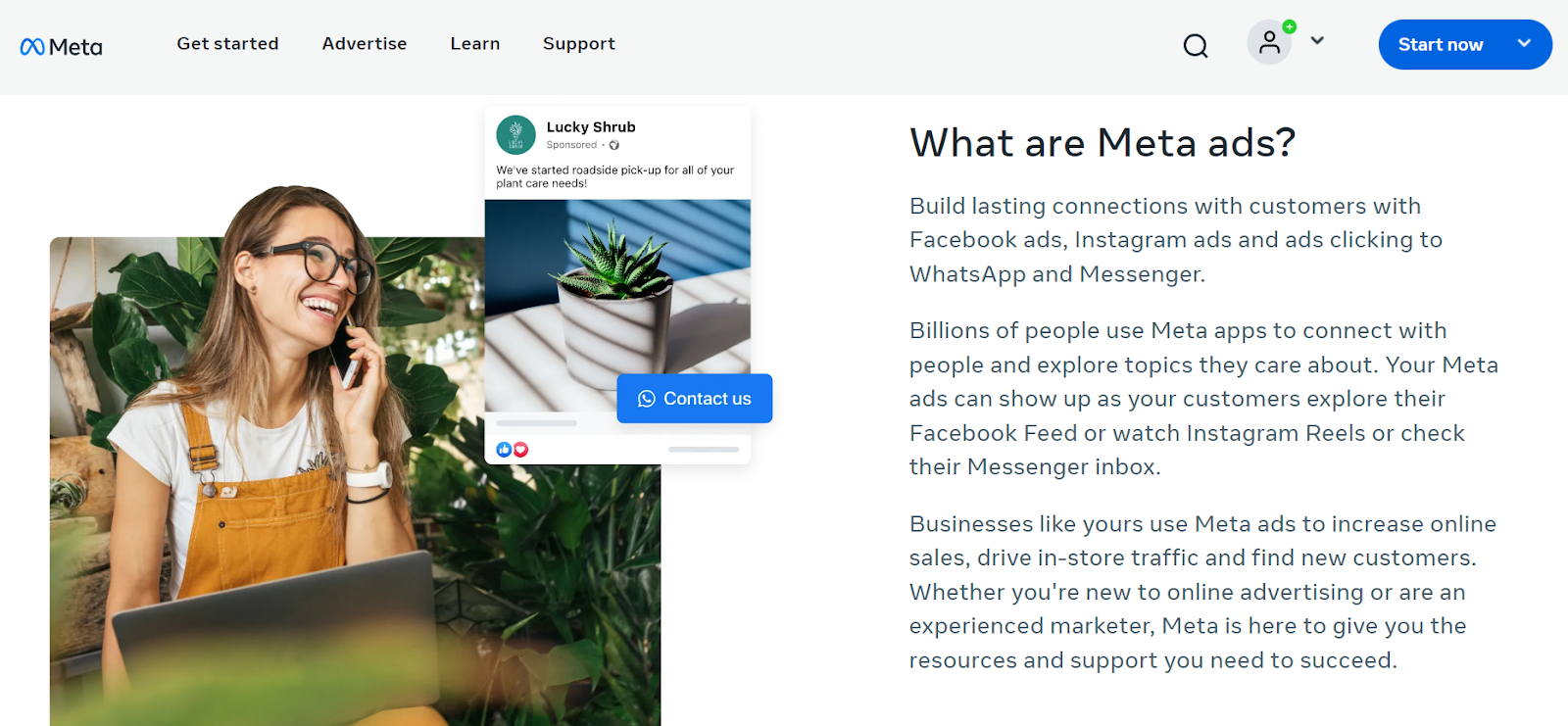16 July 2024 |
By - Sudha Mariappan

When everything you see and consume is through social media, as a small business owner you need to take advantage of these amazing platforms.
You can most definitely find your potential customers on every corner of your social media platforms.
Every corner denotes a different feel, a different audience. Social media platforms can be visualized as those marketplaces where specific interests and demographics are separated and easy to find.
Getting the right platform for your small business means being able to zoom in on those customers who would show interest in what you have to offer.
Why is social media important for your small business?
Social media platforms provide small businesses an endless array of options to get their brand out in public, get new customers and directly interact with their customers.
- Reach New Customers:
The social platforms offer a vast pocket of potential buyers that you may not tap into using only conventional marketing.
- An Affordable Marketing Process:
Social media offers a much better deal compared to traditional advertisement in the market to make your company known and familiar to prospective clients.
- Create Brand Awareness:
Constant social media presence keeps the brand in the customer's eye and, over time, on top of their mind.
- Direct Interaction:
Social media supports direct interaction with your customers. You can address concerns, answer questions, and get closer to building strong relations.
- Targeted Marketing:
Most platforms have sophisticated targeting options, where you can be sure to reach only those users likely to be interested in your product or service. You can check our Marketing blogs for more detailed information.
- Community Building:
You can reach out and identify yourself with both old and new customers on social media platforms, hence they tend to build you a community, therefore fostering brand loyalty.
- Track Your Success:
Social media analytics dive into your marketing results and make them actionable, so you can see which work and have to be revamped to have new, better results.
In other words, social media equips small businesses with a very resourceful toolkit to not only connect and build customer brand loyalty but also to boost eventual sales and growth.
Which Social Media Platforms Work Best for Small Businesses?
Facebook: The grandfather of all platforms with a huge user base cutting across all demographics, it is perfect for sharing updates, running promotions, and creating groups that foster discussions within its community. Organic reach is the way you can reach your brand to potential customers.
Recently facebook has been using Meta AI for small business growth reach through Meta Ads.

Instagram: Instagram is visually driven, so it's best for businesses whose products are visually appealing, such as fashion, food, or travel businesses. It is only through striking pictures and stories, accompanied by compelling captions, that audiences can be reached on this platform.
Twitter: Twitter is a social network that loves to see more from businesses that have small chunks of useful information to share and can join trending conversations with relevant hashtags. Quick tweets and direct messages are also workable means for customer service delivery.
LinkedIn: This business networking site bridges your business with prospective clients or partners. It is great for B2B or professional target markets, as LinkedIn gives one a chance to share industry insights, articles, and company updates, hence becoming a thought leader.
Youtube: YouTube is the destination for video content. Your small business can do product demos, tutorials, or even behind-the-scenes views of the business. High-quality and information-rich videos can do much more to educate a potential customer, they can also improve your search rank.
Pinterest: It's a visual discovery platform, literally a jackpot of inspiration. This is the place for businesses catering to hobbies, home décor, or DIY projects, you have a dedicated audience for all. Creation of eye-catching boards with the relevant keywords will get discovered by potential customers who are looking for ideas.
Read Also: The secret weapon of a savvy business:
Try these tips on how Facebook Ads will Crack the Conversion Code.
How to Scale up your Small Business using Social Media:
Social media has greatly improved itself from only being a source of entertainment to being a powerful tool for all businesses. A small business owner may not worry about the promotion of their products and pay a hefty amount for marketing. Instead, they can leverage their businesses by using social media platforms.
1. Know Your Audience:
Before you dive in, take a step back and understand who it is you're trying to connect with. Create a buyer persona detailing the demographics, online habits, and pain of your ideal customer.
Are they young professionals scrolling through LinkedIn, or are they fashion enthusiasts roaming through Instagram stories? Once you know where they hang out online, you can tailor your content and select the platforms that best resonate.
2. Create Engaging Content:
How often do you scroll on Instagram? The answer might be doomscrolling. With less attention span among your audience, you have to hook them with content that stops thumbs from scrolling and compels them to engage with your content.
Informational summaries of blog posts or industry insights set up your experience and engender trust. Light, funny memes, or behind-the-scenes peeks at your life leverage relationships. Add a sprinkle of promotional content that brings out your offerings without being too salesy.
People will continue to follow a brand that provides them with something valuable. Be it laughter, learning a new skill, or solving a problem, this is what they are looking for in your content. Content engagement encourages customer loyalty.
Weave stories into all your content to grab attention and really make it stick. Share stories of customer success, cite the journey of how you created your product, or come up with relatable scenarios in which your offering is the solution.
The image is everything in capturing the attention of your target market amidst a content jungle. Infographics, high-quality photos, or even short videos will break up the text and make it visually appealing.
3. Create Consistent Content:
Regular posting keeps your brand top of mind. Create a content calendar to plan your posts ahead of time. In that way, you will post consistently and efficiently in bulk. But don't bomb your followers – find a posting frequency that feels native on your platform.
Read also: What is a customer persona? Know your ideal customer by building a customer persona.
4. Build your Customer Engagement:
Social media is a two-way street. For it to really work, engage with your audience actively. Here are some ways to spark conversations and build relationships:
- Respond to comments and messages in a timely manner. Answer questions, address concerns, uphold appreciation for their feedback.
- Offer contests or giveaways to raise excitement, increase user-generated content to gain even more reach, and attract new followers.
- Go live with Q&A sessions, product demos, or behind-the-scenes tours to give your audience a feeling of real-time interaction and provide them with a channel to connect on a deeper level with your brand.
- Collaborating with Influencers opens the doors for your brand to a new audience and is able to drive sales or brand awareness by leveraging the credibility of the influencer.
- Consider running paid social ads since, at times, it may be a very hard fight for organic reach on certain platforms.
- Sharing light-hearted content, celebrating employee success, or engaging in relevant trends is all about being human and authentic.
5. Track Your Results:
Numbers will never lie. Keeping an eye on your social media performance will make sense of what is working and what's not. Track your content reach and engagement including likes, comments, shares and followers.
Also, tracking website traffic that is generated through clicks from social media to your website, and lead generation will attract potential customers interested in your offering.
You will know what kind of content really works for you or when it's time to adjust a strategy for better outcomes by looking at these metrics.
Conclusion: Do not think that all platforms are a must to be on, all at once. Focus your efforts on 1-2 that really fit your audience and your content strategy. As you gather more experience and resources, you can make your way toward other platforms.
Be consistent in what you post and engage on the platforms you've chosen. It is about quality, not quantity. Focus on creating useful content that will resonate with your target audience.
Social media success for a small business is really about creating a strong and loyal community. You'll find it far easier to turn those online connections into real customers once you've chosen the right platforms for your business and know how to craft posts that really resonate with your ideal customer.
Want to build an online presence? Connect with us at info@ontogendigital.com. Also, subscribe to us for more blogs.
KEY TAKEAWAYS:
- Social media networks offer small businesses an inexpensive conduit to reach new customers and build brand awareness.
- Direct engagement through social media makes it easier for a business to address customer concerns and set up healthy relations with customers.
- The targeted marketing options provided by social media make sure businesses are reaching the most interested users.
- Organic, frequent, valuable content will keep you top of mind and build a loyal community.
- Track your social media analytics to help adjust any strategy for better marketing results and growth.